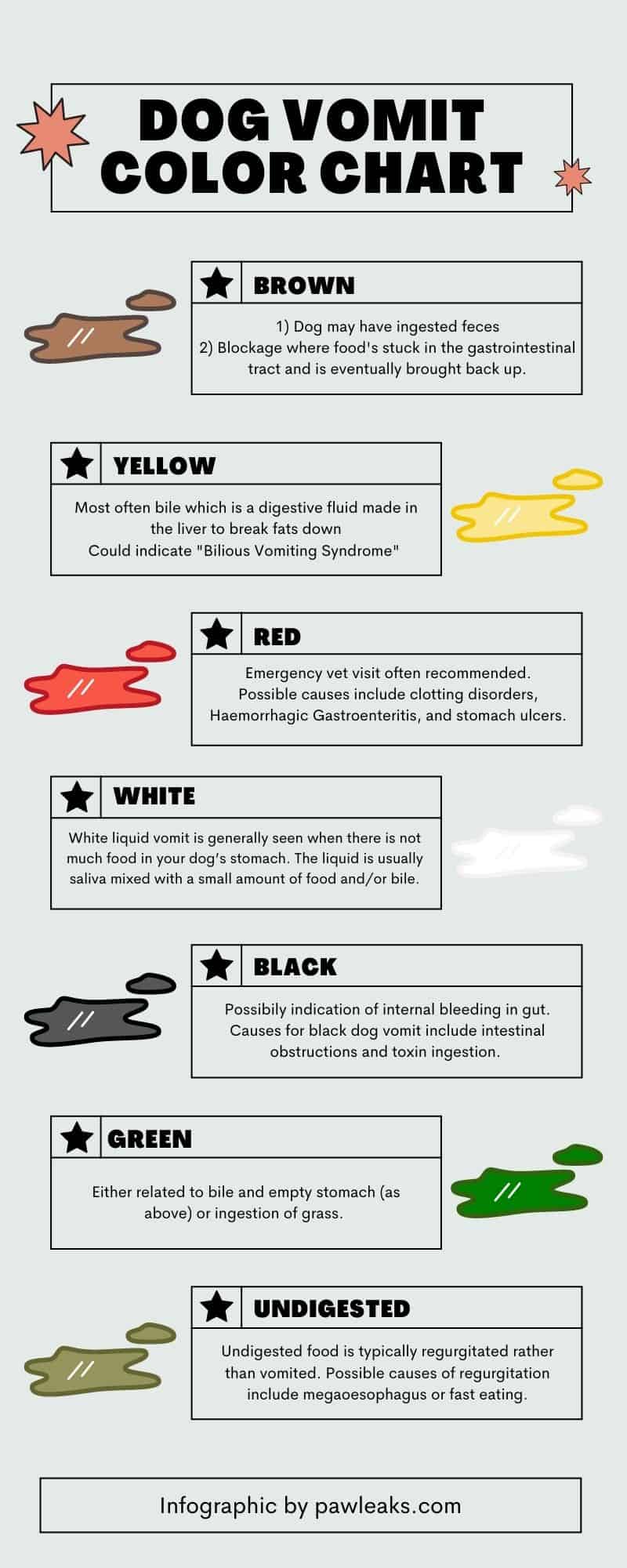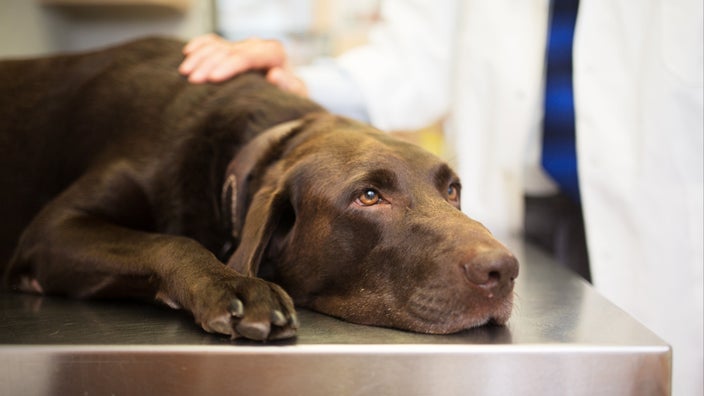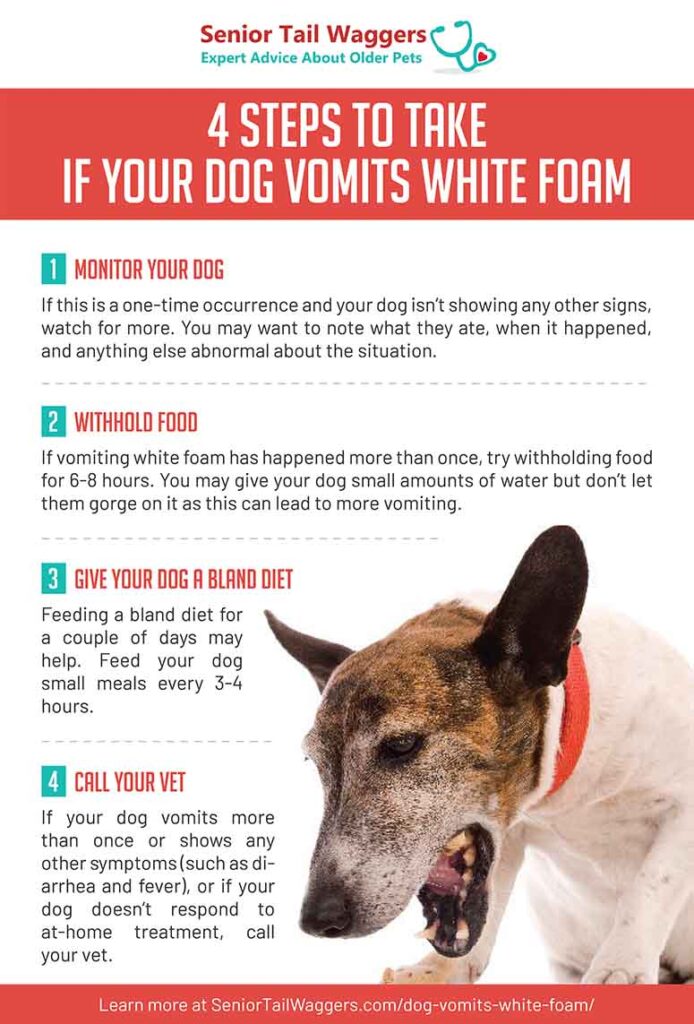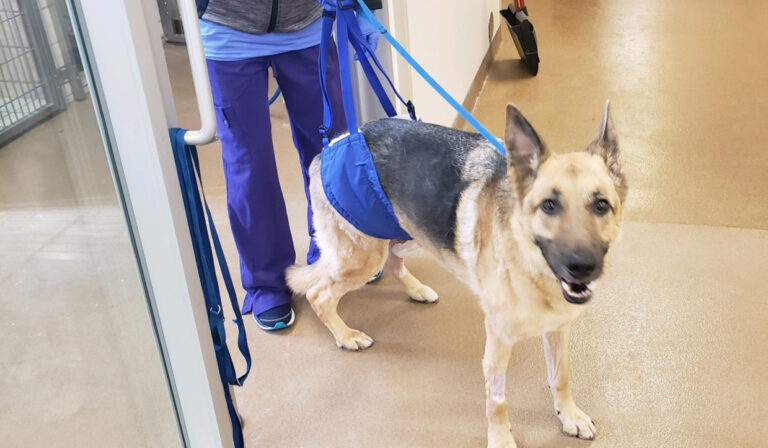As pet owners, we all know that having a furry friend sometimes means cleaning up a mess or two.
One of the most unpleasant and common situations we face is when our dog throws up their food. It can be quite alarming to see your beloved pet heaving and retching, but it’s important to know that this is a natural bodily response that dogs have in order to remove unwanted or harmful substances from their stomach.
In this post, we will discuss why dogs vomit, how to treat and prevent it, and when to seek veterinary care. So, if you’re dealing with a dog that threw up their food, keep reading!
1. The Difference Between Vomiting and Regurgitation in Dogs
Vomiting and regurgitation may seem like the same thing, but they’re actually two very different processes with different causes and potential problems in both cats and dogs.
While vomiting is an active movement that contracts and forces the stomach contents up and out, regurgitation involves undigested food and saliva from the esophagus being expelled in a tubular, slimy form.
Regurgitation usually involves disease or obstruction of the esophagus, while vomiting can be caused by a wide range of issues. If your pet is experiencing either symptom more than once a week, it’s important to take them to the vet for proper diagnosis and treatment.

2. Common Causes of Regurgitation in Dogs
Regurgitation in dogs is a common occurrence that is a normal function of their digestive system.
However, it is important to distinguish it from vomiting as their causes and treatments are different.
Regurgitation happens when undigested food is brought up from the esophagus, up through the mouth, and out. It is an adjustment and does not involve abdominal heaving.
Regurgitated food looks the same as when it was eaten and it hasn’t been digested.
Vomiting, on the other hand, involves expelling a toxic or unwanted substance and is usually a sign of a digestive imbalance. It comes from the stomach and upper intestines, and contains mostly digested food plus bile and foam.
Chronic regurgitation can indicate serious health problems, and it is essential to seek veterinary care if it persists.
3. Understanding Dog Vomiting: Causes and Symptoms
Dogs may throw up for various reasons, including overeating, eating too fast, or eating something that doesn’t agree with them.
It’s essential to know the difference between vomiting and regurgitation. Vomiting is an active process where food comes out partially digested along with clear or yellow-green liquid. In contrast, regurgitation is much more passive, often expelled in a cylindrical shape containing undigested food, water, and saliva.
Some common causes of vomiting include consuming garbage or fatty foods, intestinal parasites, viral infections, motion sickness, stress, excitement, and anxiety. If your dog is showing other symptoms like diarrhea, is lethargic, or is vomiting blood, it’s time to contact your vet.
4. Signs of Serious Illness that Cause Dogs to Vomit

Tell them about any concerns you have regarding your pet. Certain conditions that cause vomiting in dogs can be life-threatening, so it’s important to seek medical attention if your pet exhibits any alarming symptoms.
These include lethargy, loss of appetite, bloody vomit or stool, abdominal pain, diarrhea, and dehydration. Vomiting may be caused by dietary indiscretion, parasites, infections, or more serious illnesses like cancer or organ dysfunction.
Your vet will perform diagnostic tests to determine the underlying cause and treatment options, which may include medication, surgery, or hospitalization with intensive therapy. [
5. Treating and Managing Canine Vomiting at Home
If your dog is vomiting, there are some home remedies that can provide relief. However, it is important to note when to consider these remedies and when to take your dog to the vet.
If your dog vomits once or twice and remains alert, you can try some at-home treatments. Begin by fasting your dog for 24 hours for adult dogs and 12 hours for puppies. Then feed them a bland diet like boiled chicken or beef with rice.

You should also keep water available but in small amounts. However, if your dog is repeatedly vomiting, acting lethargic, or there is blood in their stool, seek immediate veterinary care.
6. When to Take Your Dog to the Vet for Vomiting
It’s important to note that one episode of vomiting is not always cause for alarm. However, if the vomiting is ongoing and your dog looks sick or becomes lethargic, it may be time to seek veterinary care.
Additionally, puppies who vomit for the first time require special attention as they are at higher risk for dehydration and serious illnesses.
If your dog shows signs of dehydration, such as dry gums or inelastic skin, seek care immediately. It’s also important to take your dog’s temperature to check for fever or other signs of infection.
Overall, it’s always best to err on the side of caution and seek veterinary care if you are unsure about your dog’s vomiting.

7. Preventing Vomiting Episodes in Dogs: Tips and Tricks
Give your dog a bland diet after vomiting. According to Elswick, once your pup has gone several hours without vomiting, you can start feeding small, frequent meals of boiled chicken and rice or a specially formulated bland diet recommended by your vet.
Gradually reintroduce their regular diet after a few days. If vomiting persists or your pup shows other abnormal symptoms, it’s best to seek veterinary care.
Keeping an eye on your pup’s overall health and habits can help prevent vomiting episodes in the future.

8. Dealing with Regurgitation in Dogs: Tips and Tricks
Section 8 offers tips and tricks for dealing with regurgitation in dogs.
Regurgitation is a normal process in a dog’s digestive system, where undigested food is brought up from inside the esophagus and out through the mouth.
Unlike vomiting, regurgitation doesn’t involve any abdominal heaving, and the dog’s esophagus allows for easy evacuation.
Common causes of regurgitation are overeating, eating too fast, stress, and anxiety. By following the advice in this section, such as fasting the dog for 24 hours and feeding a bland diet, you may be able to help your pet deal with regurgitation.

9. Understanding the Link Between Dog Diet and Vomiting
There are many reasons why a dog may vomit, including: eating too fast, eating too much, eating something they shouldn’t have (like garbage or toxic substances), an infection or disease (such as gastrointestinal issues, pancreatitis, or kidney disease), motion sickness or car rides, stress or anxiety, and more.
Understanding the potential causes of vomiting can help you identify the issue and take the appropriate steps to help your pup feel better.

10. Final Thoughts: How to Help Your Dog When They Throw Up Food
If you suspect your dog may vomit, try offering them small amounts of bland food or water. It’s important to monitor your pet’s condition and seek veterinary care if they continuously vomit or show other symptoms such as lethargy, diarrhea, or abdominal pain.
With the right care and attention, you can help your dog recover quickly and prevent further health issues.







